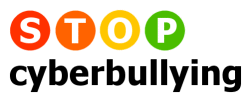 |
what is it? :: how it works :: why cyberbully? :: prevention :: take action :: what's the law?
![]() In this section:
In this section:
What you should report to the police :: Take legal action :: What's law enforcement supposed to do?
What's law enforcement supposed to do?
First, they need to be trained to tell the difference between annoying communications and dangerous ones. They also need to understand how to investigate a cybercrime and how to obtain information from an ISP. (Specially-trained volunteers at WiredSafety.org's cyberlawenforcement.org can help.)
We advise that anyone who threatens your child physically, who is posting details about your or your child's offline contact information or instigating a cyberbullying by proxy campaign should be reported to the police. (Although you should err on the side of caution and report anything that worries you.) Using a monitoring program, such as Spectorsoft, can facilitate the investigation and any eventual prosecution by collecting and preserving electronic evidence. Print-outs, while helpful in explaining the situation, are generally not admissible evidence.) If you feel like your child, you or someone you know is in danger, contact the police immediately and cut off contact with this person or user, staying offline if need be until you are otherwise instructed. Do not install any programs, or remove any programs or take other remedial action on your computer or communication device during this process. It may adversely affect the investigation and any eventual prosecution.
Law enforcement already has a tough job. They need to handle all offline crimes, are expected to suddenly become experts in cybercrime (when they often don't have more than a home AOL account at their disposal) and now, when children are harassed by other children, they are expected to do something.
Cyberbullying is generally not a law enforcement issue. It typically falls short of the local or state cyberstalking and harassment statutes. (We've included the 2005 current NY statute as an example.) But it can be a crime if it involves a credible threat, repeated communications or posting contact information of the victim in a pedophile chat room to provoke sexual attacks on the victim.
We've put together a checklist for first responders to help law enforcement tell the difference between what's merely annoying and what is criminal. It may have been called an intake form/checklist. Can you link to it here?]
WiredSafety.org volunteers can assist law enforcement when cyberbullying or cyberharassment occurs. Drop by our Cyberlawenforcement.org division to get help or information.
Law enforcement can assist parents by steering them to their cyberbully's ISP. Most ISPs prohibit cyberbullying and harassment using their services and will terminate the cyberbully's Internet account. Sometimes this can be more effective than threatening the cyberbully with jail.
Follow this link to learn how to make a report to your ISP >>
They can also give cyberbullying workshops (we'll provide everything you need, without charge, e-mail Parry directly,
) And, as Westchester County in NY did, you can hold a Wired Kids Cyberbullying Summit.
![]()







contact us :: volunteer :: media
privacy policy :: terms of use